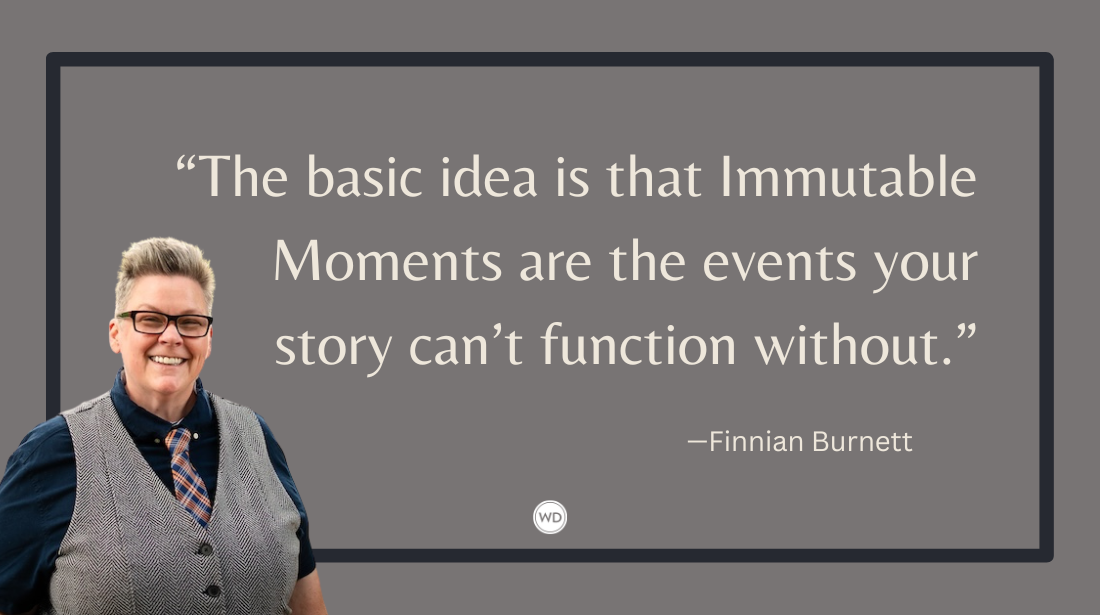Thrilling Humor: 5 Tips for Incorporating Humor into Thriller Novels (and Other Serious Fiction)
Magician and novelist Andrew Mayne explains the best ways to include humor in any writing genre without going overboard.
Humor is such a subjective notion that I’m hesitant to say that I’ve figured it out or point to something I did and say that it’s funny. That said, I try. As a magician and a creative consultant, I've had the opportunity to work with the likes of Penn & Teller and get to know The Amazing Johnathan and see how really funny people approach it from very different ways.
As a novelist, some of my thrillers have very serious characters, others have more light-hearted ones—and that’s the secret to how I incorporate humor in my stories. I, Andrew Mayne, the author, never crack wise in my thrillers (Unlike, I, Andrew Mayne, magician, podcaster, smart-ass human being.) However, in my stories I let my characters make sarcastic responses or crack jokes from time to time.
I think a good thriller should reflect real life. In real life, we know funny people and we know serious people. We also derive humor from funny situations that happen to serious people. As a writer I try to find the right balance and use it where the story requires.
That said, in the spirit of the fact that no useful knowledge can ever be acquired without breaking it into a listicle, here are five tips on incorporating humor into thriller novels and other serious stories.
1. Include a character with a sense of humor.
Is there someone always ready to make a quip or point out what’s funny about a situation in your story? Just be careful of making them the clichéd comic relief. You don’t want your readers saying to themselves, “Oh no, here comes Coroner Arbuckle and his one liners.” What may seem like a funny character may in fact be the most annoying person on the planet.
Also, use this character sparingly. While they may be hilarious in a scene where levity is warranted, having your funny sidekick make a joke as your protagonist is trying to console a grieving mother will just make them look like a jerk (unless you’re trying to be intentionally dark).
2. Puns are horrible.
Puns are horrible. There’s a reason they’re called “groaners.” I hate them all. Just stop. Unless you’re nine. Then it’s totally cool. Otherwise, no.
3. Know what’s funny.
I’ve failed at this so many times. When I was younger I thought that making really smart references automatically equalled funny until I realized that was I being dumb trying to be smart. Learn to analyze a joke and understand it’s not just about the words—it’s who's saying them and in what context. For a great book on comedy, check out Steve Martin’s autobiography, Born Standing Up. Martin gets very analytical about comedy and breaks it down like a science. Also, see #2.
4. Make your character the subject of the humor.
I love having other people picking on my characters. Whether it’s my astronaut David Dixon getting no respect from his mother for saving the world or the brilliant Theo Cray getting cut to shreds from a state medical examiner who quickly points out his shortcomings. I think it’s funnier when they’re taking the fall than when they do it to someone else.
This can also mean making your characters self-aware. My Jessica Blackwood character is very self-conscious and sarcastic. Her jokes are usually self-deprecating, and I think that’s what makes her relatable. Thanks to the first-person perspective, we get to go inside her head as she has her “Well now I’m an idiot” moments that every normal human being has a dozen times a day.
5. Quality over quantity
Unless you’re writing straight up humorous prose (like Terry Pratchett or Douglas Adams) I don’t think you need to worry about getting as many jokes in per page as just making sure that when you do, they land. One well-timed, pithy response after a carefully constructed scene can be way more effective than a deluge of jokes. What the right amount is depends upon you as a writer—everybody will have their own answer.
Don’t be afraid to write more humor than you need and take it out later. If a good opportunity comes up, jump on it and decide later. One of the secrets of comedy is to not be too quick to self-censor.
Andrew Mayne, star of A&E’s Don’t Trust Andrew Mayne, is a magician and novelist ranked as the fifth bestselling independent author of the year by Amazon UK. He started his first world tour as an illusionist when he was a teenager and went on to work behind the scenes for Penn & Teller, David Blaine, and David Copperfield. Andrew’s novel Angel Killer is currently in development for television by Twentieth Century Fox and Temple Hill Entertainment. He’s also the host of the Weird Things podcast and the author of the new bookThe Naturalist.








